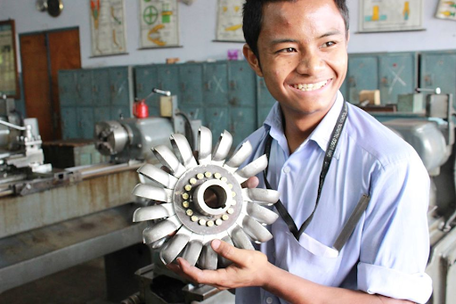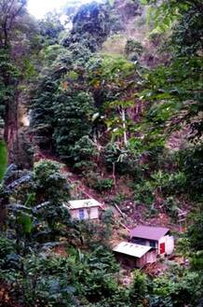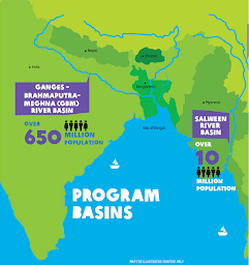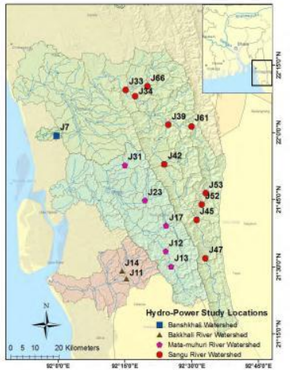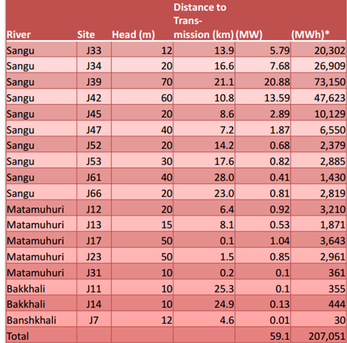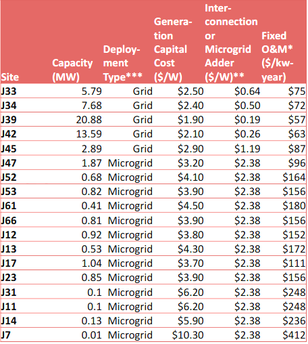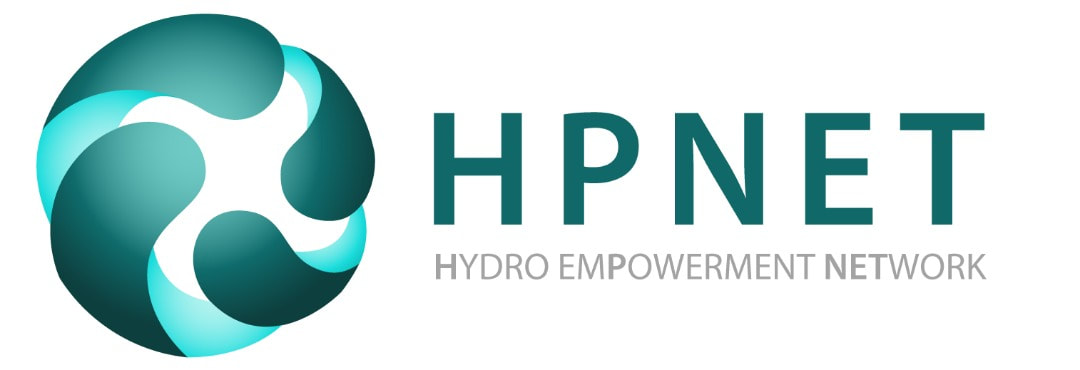However, community-scale hydropower offers an alternative path that provides modern energy services, while strengthening the local social, economic, and ecological resources of this unique region. The region is fortunate to have experienced local practitioners who have been advancing pico hydropower as a nature-based, community-centric solution for clean and sustainable energy access.
| A key component of the SEEED Accelerator is to establish peer-to-peer and multi-stakeholder cohorts, targeting different geographic regions. We’re excited to launch the first SEEED cohort -- focusing on the basin regions of the Ganges, Brahmaputra, Meghna, and Salween Rivers (GBMS) in partnership with International Rivers, supported by TROSA and the WISIONS initiative at the Wuppertal Institute of Climate, Environment and Energy. The partnership offers three learning opportunities for field-based practitioners in the GBMS basins -- namely group capacity building, individual customized coaching, and peer-to-peer exchange. Read on to learn more! |
The GBMS SEEED cohort kicked off earlier this month with a 3-day virtual capacity building event, offering technical capacity building for small-scale hydro practitioners working directly with communities in the GBMS regions (i.e. Bangladesh, Bhutan, India, Myanmar, Nepal or Thailand). The course was conducted by Mr. Ramasubramanian (a.k.a Rams) Vaidhyanathan, focusing on site assessment and the basics of system design for systems < 10 kW. Days 1 and 3 were conducted online, and Day 2 included optional field assessment work. The group of 20+ participants are continuing to solidify their understanding of key topics while also learning about each other’s work through group emails facilitated by Rams. Remaining committed to field-based practitioners, the HPNET Secretariat will continue to facilitate learning exchange among the cohort beyond the HPNET - Intl Rivers partnership period.
All participants who completed the 3-day group training have been invited to receive follow-up, customized capacity building. This allows helping to resolve each participant’s specific technical issues in their ongoing initiatives and to improve their technical processes to prevent issues. This type of support is important for both advanced practitioners (e.g. NE India practitioners scaling up their work to hundreds of implementations this year), as well as beginning level practitioners (e.g. civil society organizations in Myanmar who are conducting their very first feasibility studies). It is also an opportunity for the HPNET Secretariat to continue refining its approach to the SEEED Accelerator, better responding to and strategizing context-specific needs for future cohorts.
An exchange event will be held on 21-22 September, 2021. Building upon exchanges conducted in 2016, 2018, and 2019, this 2-day virtual event aims to provide opportunities for South-South, peer-to-peer exchange and multi-stakeholder dialogue. Day 1 will focus on sharing from field-based practitioners from across the Asia Pacific, while Day 2 will focus on multi-stakeholder dialogue on country and state specific challenges and opportunities in the GBMS regions. See here for details on how to participate!
